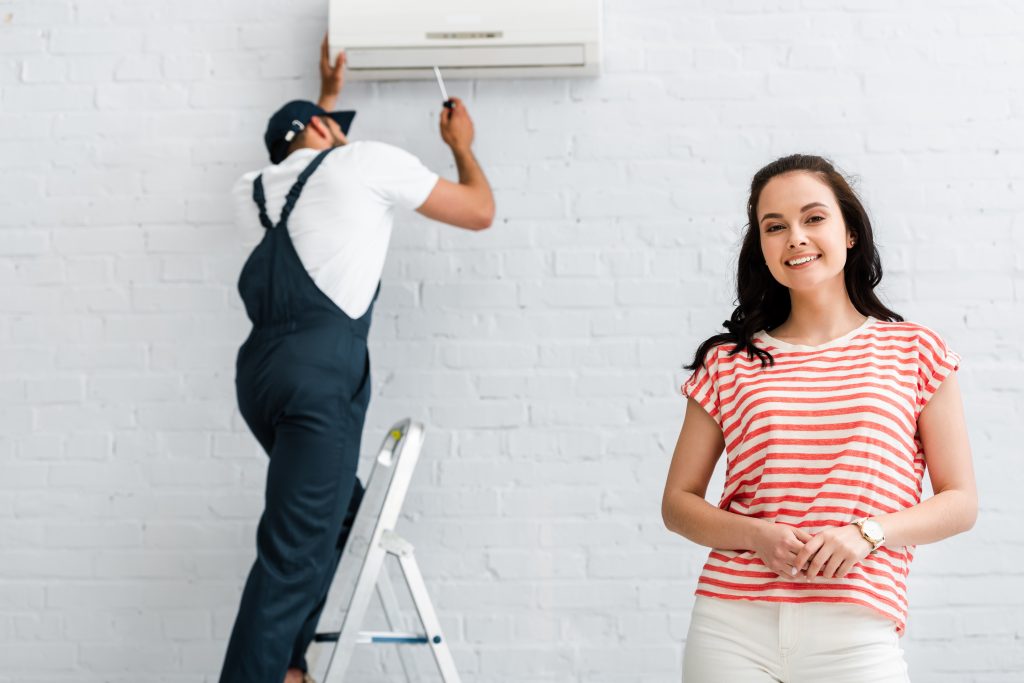Is Closing Vents Bad For Your AC?

Whether it’s cooling off your living space in a hot summer, or heating your home in the midst of winter, you probably agree that your HVAC system is not a cheap affair – according to ENERGYSTAR, heating and cooling your house makes up for about half of the total energy bill.
No wonder we continuously look for ways to be more efficient with air conditioning and one such hot topic that everyone seems to discuss is closing air vents in unused rooms in order to direct air to other areas. So…does it work? The answer might surprise you.
Air Pressure and Closed Vents
The first major problem (and there are more!) with closing air vents is that it increases the pressure in your ducts. That’s because your HVAC system was designed for a certain amount of air going in and a certain amount going out.
The best metaphor to put this issue into perspective is to imagine your air conditioner as you trying to breathe air in through your mouth and breath it out through your nose. Now imagine that you would close one of your nostrils, but you’d continue to inhale the same amount of air through your mouth. You would have to put a lot more effort to breathe comfortably and you’d probably get light-headed.
Two out of every three houses in the US suffer from significant duct leakage, so when the air pressure in the ducts builds up, they can very easily burst.
Closing Air Vents Damages Your HVAC System
According to experts, closing vents in the unused rooms leads to frozen coils, damaging the system’s compressor. For both heating and cooling equipment, closing air vents causes damage to system components, which will almost inevitably lead to expensive system repairs and early replacement, negating any potential savings from redirected air.
Closing Air Vents Does Not Save You Money
Your HVAC system was built to be “balanced.” The ductwork was sized for the amount of air going in to be the same as the volume of air going out. An average home already loses between 20 – 30% of energy due to leaky ducts.
By closing the vents in unused rooms, you are increasing the pressure in the ducts, forcing MORE air out of those leaks, making the system less, rather than more efficient. All the while running your air conditioner to the ground, leading to an early replacement.
Other Problems Caused by Closing Air Vents
Closing the vents in unused rooms leads to other problems in your home.
Comfort Issues
With your blower delivering less air, thanks to closed vents, your air-conditioning will take much longer to cool or warm up your house, so you will have to run it for longer periods of time to get the same level of comfort.
Mold Growth
When you close vents, condensation starts building up on the surface of your unused rooms. What does a layer of moisture in an airless room lead to? You guessed it, your least favorite guest – mildew and mold growth.
Carbon Monoxide Poisoning
Now, this one is really serious! While the previous issues can be classed as nuisances disrupting your family’s levels of comfort, the risk of carbon monoxide is no joke.
Carbon monoxide is undetectable to humans because it has no taste, no color, and no smell. However, it can have very deadly consequences. When you close vents, less air is delivered through your furnace’s heat exchanger (the part that heats the air), causing it to overheat, possibly crack. When it does, it can release deadly carbon monoxide into the home.
Prevent a possible catastrophe and make sure you have a working carbon monoxide detector installed in your home (and keep the air vents open).
Managing Airflow Efficiently
So what is one to do in order to make the HVAC redirect air from the unused rooms? One option is to invest in a zoned HVAC system, which regulates and redirects air to specific areas (zones) of the home. The good news is that in combination with a programmable thermostat, zoning can reduce energy by up to 35%. The downside is the initial cost, typically ranging from $2,000 to $3,300 depending on the number of zones.
Whatever you do, don’t close your vents in hopes of saving on heating and cooling costs in unused rooms. This solution not only damages your system, leading to a potential early and costly replacement but entails a myriad of other issues including mold, energy losses, and even a threat of carbon monoxide poisoning.
FAQs
Is it Okay to Close AC Vents in Unused Rooms?
You definitely should not close your air vents in unused rooms, as it leads to several problems. Forcibly redirecting the airflow can build up pressure in your ductwork, causing it to burst. In addition, you can potentially damage your system components, leading to expensive repairs. And don’t get us started on mildew and mold growth in poorly ventilated rooms, or worse yet, risk of carbon monoxide poisoning!
Does Closing Vents Increase Airflow?
No, quite the opposite. Closing vents in unused rooms actually reduces return airflow, potentially overheating the heat exchanger (the most pricey system component), leading to cracks. Not a great way to save energy!
Can Closing Vents Cause AC to Freeze?
Closing your air vents leads to low airflow, which can make your evaporator coil freeze over. Your system now has to work harder to cool your room, making it likely to waste, rather than save energy and money.
Updated on



